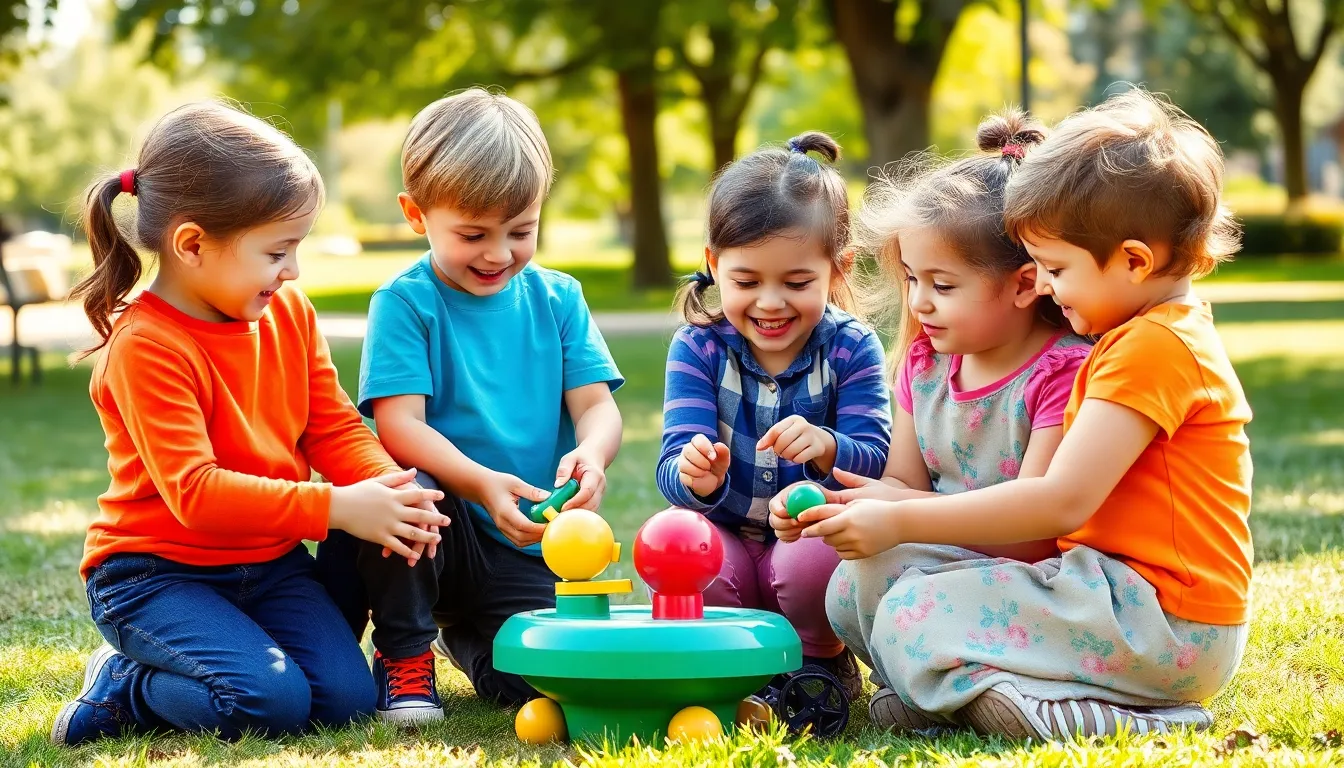Table of Contents
ToggleEmpathy is more than just a buzzword; it’s a crucial skill that shapes relationships and enhances emotional intelligence. In a world increasingly driven by technology and individualism, fostering empathy has never been more essential. It allows individuals to connect deeply with others, understand diverse perspectives, and build supportive communities.
Developing empathy isn’t just beneficial for personal growth; it also plays a vital role in professional environments. Leaders who cultivate empathy can inspire their teams, improve collaboration, and drive innovation. This article explores effective strategies for nurturing empathy in everyday life, highlighting its importance in creating a more compassionate and understanding society.
Understanding Empathy Development
Empathy development involves cultivating the ability to comprehend and share the feelings of others. This skill is crucial for fostering deeper connections and enhancing emotional intelligence in various aspects of life.
Definition of Empathy
Empathy encompasses the capacity to recognize and understand another person’s emotions and perspectives. It involves cognitive empathy, which refers to understanding someone else’s thoughts, and emotional empathy, which entails feeling what another person experiences. Effective empathy combines these elements, enabling individuals to respond appropriately in social situations.
Importance of Empathy Development
Empathy development plays a significant role in personal and professional contexts. Empathetic individuals tend to form stronger relationships, leading to greater trust and collaboration. In leadership roles, empathy enhances communication, motivates teams, and encourages a supportive workplace culture. Research indicates that empathy contributes to reduced conflict and improved conflict resolution skills. Additionally, increased empathy leads to a more compassionate community, fostering inclusivity and understanding among diverse groups.
Stages of Empathy Development


Empathy develops through distinct stages that reflect a child’s growth and cognitive abilities. Recognizing these stages can enhance understanding and support for individuals as they cultivate this essential skill.
Early Childhood
Early childhood is crucial for empathy development. At this stage, children begin to recognize emotions in others, typically between ages 2 and 4. Through interactions with caregivers and peers, they learn to identify expressions of joy, sadness, and anger. Simple narratives in picture books help enhance their emotional vocabulary and understanding. Engaging in role-playing activities allows children to practice empathetic responses, such as comforting a friend or sharing toys. During this time, consistency and positive reinforcement from adults encourage the nurturing of empathetic behaviors.
Adolescence
Adolescence marks a significant advancement in empathy skills. As individuals reach this stage, typically around ages 10 to 18, they develop a deeper understanding of complex emotions and perspectives. Cognitive empathy becomes more pronounced, allowing adolescents to comprehend other people’s thoughts and feelings on a more profound level. This growth often stems from involvement in diverse social situations and peer interactions. Discussions about ethics, social issues, and self-reflection further enhance their ability to empathize. Supportive environments, such as schools and families, play a crucial role, promoting open dialogue and emotional intelligence, enabling adolescents to apply empathy in various contexts.
Factors Influencing Empathy Development
Empathy development is shaped by various factors that significantly impact an individual’s ability to understand and connect with the emotions of others. Key influences include parental guidance, social environments, and educational experiences.
Parental Influence
Parental involvement plays a crucial role in empathy development. Parents who model empathetic behavior encourage children to engage in compassionate interactions. Children learn to recognize and express emotions through discussions about feelings, fostering an environment where empathy can flourish. Studies indicate that responsive parenting, characterized by sensitivity and support, leads to higher levels of emotional understanding in children. For example, parents who validate their child’s emotions help them develop the ability to empathize with others.
Social Environment
The social environment significantly shapes empathy. Peer interactions provide opportunities for children to practice empathetic skills in diverse contexts. Connection to various groups exposes individuals to differing perspectives, enhancing their cognitive empathy. Observing empathetic behavior in friends and mentors reinforces compassionate responses. Moreover, environments that emphasize cooperation, such as team sports or community service, encourage collective problem-solving and emotional support among participants, further promoting empathy development.
Education
Educational settings contribute immensely to empathy development. Curriculum that includes social-emotional learning engages students in discussions about emotions, fostering emotional intelligence. Activities such as role-playing or collaborative projects enhance students’ understanding of others’ feelings. Educators who prioritize empathy in their teaching methods create a culture of compassion and respect. Research shows that classrooms focusing on empathy lead to improved peer relationships and reduced incidents of bullying, highlighting the importance of empathetic education.
Strategies to Enhance Empathy Development
Enhancing empathy development involves engaging in specific activities and reflective practices that foster deeper emotional connections and understanding. These strategies support individuals in cultivating empathetic skills in various contexts.
Engaging Activities
- Storytelling Sessions
Storytelling encourages individuals to express and share experiences, promoting emotional understanding. Participants connect with different perspectives through narratives that reflect diverse backgrounds.
- Role-Playing Exercises
Role-playing allows participants to step into others’ shoes, experiencing situations from various viewpoints. This activity develops emotional empathy by enhancing awareness of others’ emotions and challenges.
- Volunteering Opportunities
Community service exposes individuals to different social realities. Engaging in volunteer work fosters compassion and connection by directly interacting with those who face various life circumstances.
- Empathy Circle Discussions
Empathy circles create a safe space for sharing feelings and experiences. Participants take turns speaking without interruption, encouraging active listening and validating each other’s emotions.
- Mindfulness Practices
Mindfulness activities, such as meditation or yoga, promote self-awareness and emotional regulation. Practicing mindfulness aids in developing empathy by allowing individuals to connect with their own emotions before understanding others’.
Reflective Practices
- Journaling
Regular journaling enables individuals to explore their feelings and reactions. Reflection through writing helps identify emotional patterns and enhances self-awareness, reinforcing empathy towards others.
- Perspective-Taking Exercises
Engaging in exercises that prompt individuals to view situations from another person’s standpoint enhances cognitive empathy. Analyzing conflicts from multiple angles promotes a comprehensive understanding of emotions involved.
- Debriefing Conversations
After engaging in empathetic activities, conducting debriefing conversations allows individuals to reflect on their experiences. Discussing insights and emotions fosters growth in understanding and validating feelings.
- Feedback Sessions
Providing and receiving feedback in a structured way enhances emotional transparency. Authentic feedback discussions create an environment of trust and open communication, reinforcing empathetic behaviors.
- Gratitude Practices
Practicing gratitude encourages individuals to appreciate positive interactions and relationships. Recognizing and expressing gratitude strengthens connections and fosters a culture of empathy within communities.
Empathy development is a powerful journey that enriches both personal and professional lives. By nurturing this skill, individuals can create deeper connections and foster an environment of understanding. The strategies outlined provide practical avenues for enhancing empathy in everyday interactions.
As people embrace empathy, they contribute to a more compassionate society. This growth not only benefits relationships but also promotes collaboration and innovation in workplaces. Investing time in developing empathy is an investment in a brighter future for communities and organizations alike.





